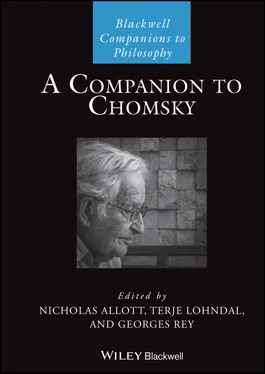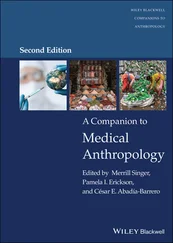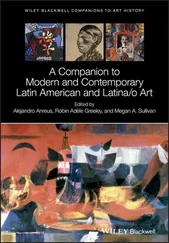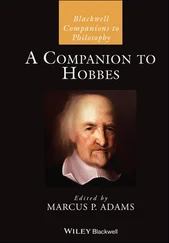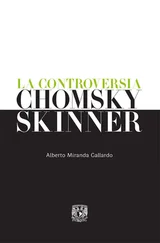A Companion to Chomsky
Здесь есть возможность читать онлайн «A Companion to Chomsky» — ознакомительный отрывок электронной книги совершенно бесплатно, а после прочтения отрывка купить полную версию. В некоторых случаях можно слушать аудио, скачать через торрент в формате fb2 и присутствует краткое содержание. Жанр: unrecognised, на английском языке. Описание произведения, (предисловие) а так же отзывы посетителей доступны на портале библиотеки ЛибКат.
- Название:A Companion to Chomsky
- Автор:
- Жанр:
- Год:неизвестен
- ISBN:нет данных
- Рейтинг книги:3 / 5. Голосов: 1
-
Избранное:Добавить в избранное
- Отзывы:
-
Ваша оценка:
- 60
- 1
- 2
- 3
- 4
- 5
A Companion to Chomsky: краткое содержание, описание и аннотация
Предлагаем к чтению аннотацию, описание, краткое содержание или предисловие (зависит от того, что написал сам автор книги «A Companion to Chomsky»). Если вы не нашли необходимую информацию о книге — напишите в комментариях, мы постараемся отыскать её.
Companion
Companion
A Companion to Chomsky
A Companion to Chomsky — читать онлайн ознакомительный отрывок
Ниже представлен текст книги, разбитый по страницам. Система сохранения места последней прочитанной страницы, позволяет с удобством читать онлайн бесплатно книгу «A Companion to Chomsky», без необходимости каждый раз заново искать на чём Вы остановились. Поставьте закладку, и сможете в любой момент перейти на страницу, на которой закончили чтение.
Интервал:
Закладка:
For the most part, though, my views were rapidly changing because of contact with, and reading of, Noam Chomsky (Chomsky 1957, 1959, 1965). His thinking and findings began to suggest to me, and to a large following of younger scholars who began to surround him, that these surface sentences at the core of Harris's thinking were mere artifacts of an underlying innate system that was only indirectly reflected in our everyday speech forms. Even more importantly, I became convinced of that approach, bolstered by the preliminary findings emerging from my (and collaborators') earliest studies of language in infants and young children. From an autobiographical point of view, I was dragged kicking and screaming toward Chomsky's view, which offended my innately empiricist leanings. Anyhow, I'll now try to say something about the work I did with many brilliant younger collaborators and where it has led me over the years.
7.1.2 What Do They Know and When Do They Know It?
Few, if any, humans behave like the ideal grammarians that these theories – even Harris's – purport to describe. First there is the question of what babies and toddlers “know” about language despite being unable to understand or produce much of the speech to which they are being exposed. The psychological literature, as it looked when I first examined it, described at most what children actually produced, as a function of age: so and so many words at age one, more at age two, and so forth; one‐word utterances at first (“Momma”) and two at a time later on (“Mommy sock”). In the early sixties, with the advent of Chomsky's first writings on the psychology of language, psychologists began to write little “grammars” of the child's primitive speech (see, e.g. Brown et al. 1968; Rodd and Braine 1971). But what is the status of these descriptions? Is children's speech, thus chronicled and organized, a reasonable proxy for what they know about their language – or about Language?
With Elizabeth Shipley, my brilliant colleague in mathematical psychology, I set out to probe the toddlers further, asking them, in effect, “Is the following sentence grammatical in your infant dialect?” To be clearer, we tried to find out if Mommy sock was an output fairly representing their linguistic knowledge at time of test. After all, when linguists try to build grammars, they never simply use actual speech as the data, but rather, or in addition, use direct or indirect judgments of grammaticality, aiming to get at what constitutes “your language,” discarding speech errors, and so forth.
Our finding, in brief (Shipley et al. 1969), was that every kid who spoke in two‐word sentences like Throw ball acted as if the same two‐word sentences from the mother to them were abnormal – they didn't obey those commands, but acted as if something bizarre had happened, whereas grammatical sentences like Throw me the ball , they simply obeyed.
This raises a second question. It may be [and Henry Gleitman and I showed, at some length (Gleitman and Gleitman 1979)] that you can't get these judgments in any coherent or full way from even the mature speakers who, if anybody, are the targets that the theory of grammar is, or should be, designed to organize and explain. Most people can't even tell you how black birdhouse , blackbird house , and house bird‐black differ in their meaning (that is, in the paraphrases they license). A question we raised concerned how a grammar built from judgments of one population – let us say, literary or otherwise book‐wise speakers of some standard dialect – can be used as the empirical basis for building a theory of all native users. Well, we did convince ourselves, in the end, that judgment‐giving itself, while useful if available, was not the only relevant source of data.
Yet a variety of uses of language, many of them important, are well correlated with the ability to give linguistic judgments – that is, to contemplate language more or less explicitly, even consciously. As we later showed with several other collaborators, including Paul Rozin and Kathy Hirsh‐Pasek (Gleitman and Rozin 1977; Hirsh‐Pasek et al. 1978), there is a cluster of skills including learning (or inventing!) an alphabetic writing system, making and understanding puns, and the like that are predicted by this “metalinguistic awareness” (Gleitman and Gleitman 1979). Something like these early generalizations is reminiscent of recent studies and approaches now called executive function, which also attempt to describe and explain certain users' access to aspects of their own cognitive functioning.
7.2 A First Look at the Input to the Child: Non‐Effects of Motherese
Now we move to the story of what I did in language acquisition, with a succession of brilliant colleagues. Many of them were called students at first, but they never were. They were just younger colleagues.
Penn's psychology department hired me in 1971, even though I had never taken a class in psychology. So I became a member of this excellent department, full of really smart people doing smart things on perception and learning and memory, and also being properly skeptical of linguistics, which I mention because there's much to be said for contact with such “outsiders” for keeping one thoughtful. I still have a visual picture in my mind of the great learning psychologist Bob Rescorla smirking politely at my more overwrought convictions about the nature of language and what we know.
After convincing myself that people know more than they can necessarily say, I still was extremely skeptical of Noam's idealization of a homogeneous speech community – sort of – which came out of that previous work that I did. And the claim that language was innate I couldn't even make out; what could that possibly mean? So I was not only an empiricist at heart, but one of my frequent sayings has always been “Empiricism is innate.”
And it certainly was with me. I'd say, What are you talking about? If you're in France, you learn French. If you're in England, you learn English. There's a sense in which it's totally obvious that language is learned from a very precise data set – sentences of English or sentences of French. Language learning comes from the outside in. But it's just as obvious that it's also from the inside out, because many of the cats and the dogs in the house are exposed to the same data set, and notoriously none of them learn English.
So if you're going to study language acquisition, a minimum first step is to distinguish between what's coming from the outside and what may be coming from the inside. An obvious way to do that is to look at what input a child receives. It's not a random sample of English sentences. Does it matter what you hear? Well, obviously, but how does it matter what you hear?
But because all my intuitions are wrong [laughter] – you know, I always start out in the wrong place. And Noam was on about how you go over to Europe on a sabbatical and your kids learn the new language and you don't, so there's something about being a child. And I thought, no, there's something about going to kindergarten and hearing kindergarten sentences instead of hearing learned sentences about linguistics.
With my colleagues, starting with Elissa Newport, we began to look at input. People were already saying that mothers speak a special kind of simplified language to their children, and that's what accounts for the learning.
Henry humorously entitled that kind of language “motherese.” [Barbara: He invented the term?] He invented the term. And Elissa Newport, for her dissertation work, began to ask if this “teaching language” really existed in the average home and what, if any, were its effects on infant learning (Newport 1975). Newport, even as a beginning graduate student, had the clearest vision of how to study, and evaluate, the effects of input variation on the acquisition function. In later years she went on to study the effects of these external influences in unusual and, therefore, revealing circumstances, including second language learning, late learning of a first language (as in some isolated deaf populations), and then how stripped‐down artificial languages are used to reveal certain universal or particular properties. More recently she's been responsible for a renaissance of thinking about brain damage and the “critical period” for language learning. Not incidentally, she became my lifelong friend. But back to her first, graduate‐school, studies of input and learning – that is, the “inside‐out” effects.
Читать дальшеИнтервал:
Закладка:
Похожие книги на «A Companion to Chomsky»
Представляем Вашему вниманию похожие книги на «A Companion to Chomsky» списком для выбора. Мы отобрали схожую по названию и смыслу литературу в надежде предоставить читателям больше вариантов отыскать новые, интересные, ещё непрочитанные произведения.
Обсуждение, отзывы о книге «A Companion to Chomsky» и просто собственные мнения читателей. Оставьте ваши комментарии, напишите, что Вы думаете о произведении, его смысле или главных героях. Укажите что конкретно понравилось, а что нет, и почему Вы так считаете.
